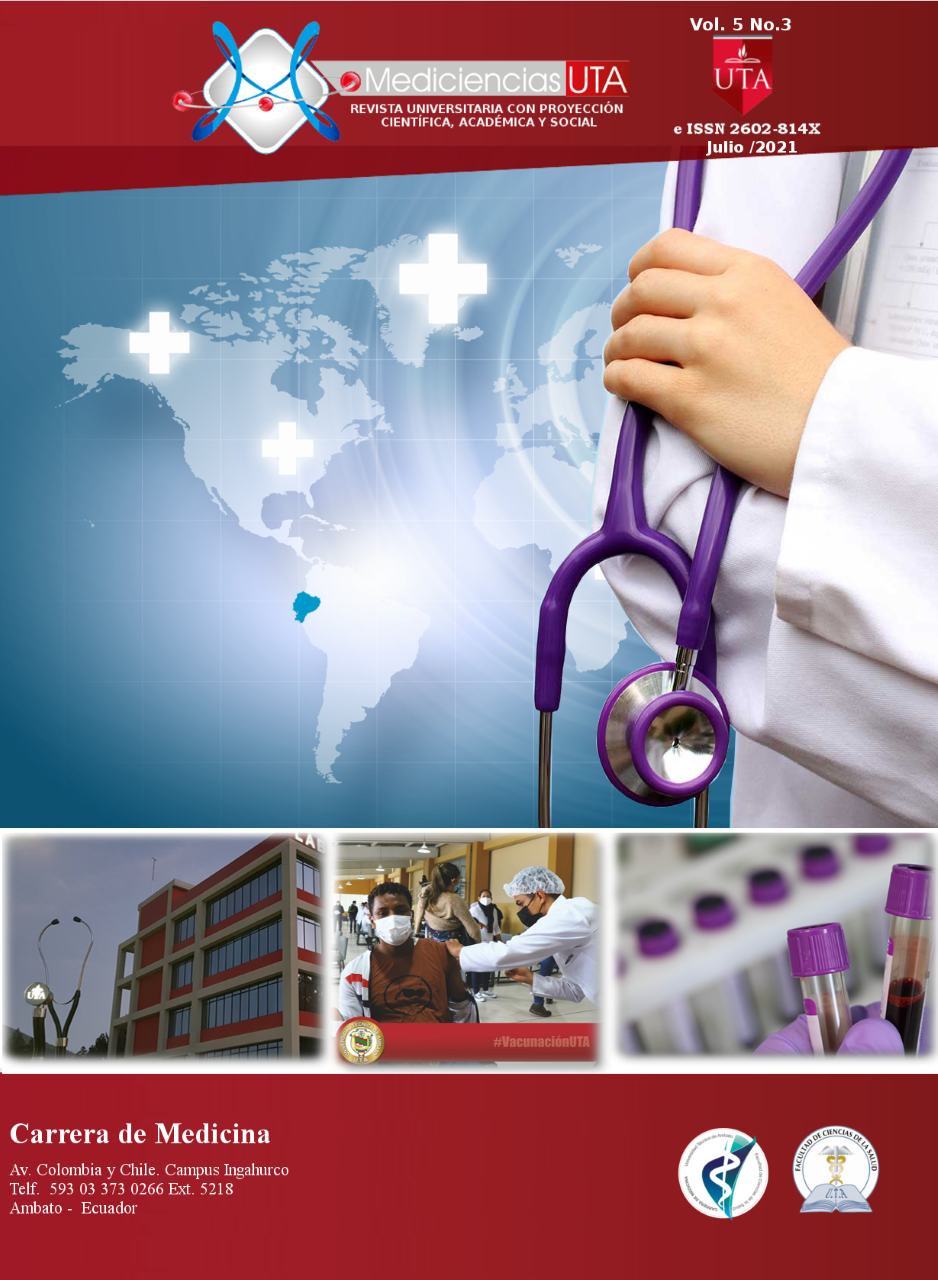Health and well-being in Tungurahuense university workers
Main Article Content
Abstract
Introduction: The health of workers is essential for the proper functioning of a work institution. Without regular and thorough evaluations, these employees may develop illnesses of varying severity, leading to a reduction in productivity, in the quality of their work and even affecting their family and social situation.
Objective: This research performs a basic diagnosis on the health status of employees belonging to a university educational center in Ambato, capital of Tungurahua, with the objective of also knowing the underlying factors that affect socio-occupational well-being.
Materials and methods: A quantitative and qualitative methodology is applied through the application of an online questionnaire to 219 teachers and administrators of the institution.
Results: Among them it is observed that 40% of workers are overweight and 10% obese type I. Almost 25% have some type of chronic non-communicable disease. Furthermore, inferential analyzes reveal that the greatest predictors of poor health are a lower degree of mood and chronic non-communicable diseases.
Conclusions: The indicators studied are important enough to take measures in this regard, while some suggestions are provided on how to guide possible prevention and intervention strategies to improve the well-being of both university employees and the institution itself.



